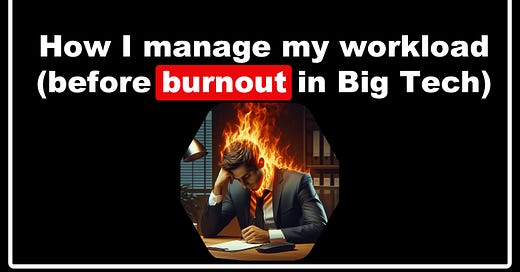My 3 strategies to manage my workload (before reaching burnout in Big Tech)
Number 3 is my favorite
How many times have you clicked “save” today?
Before I had to save all documents, all files of code.
Now my docs are auto-saved somewhere in the cloud. My code is saved the moment I switch focus outside of the editor.
But my brain still doesn’t have an auto-save functionality.
This is a problem in two ways
On one hand, there are things I forget.
On the other, my brain keeps a loop running to try not to forget.
This happens to bartenders, they keep the orders in their brains until they fulfill them.
In the frantic context-switching environment of the workplace, our brains become a mess of things we try not to forget. This effect, the Zeigarnik effect, is draining our energy little by little.
Here are some guiding principles I use to navigate better the work environment.
#1 Reduce breadth, increase depth 🤿
There is a saying that buying a home comes with a lot of hidden costs.
Well, wo…



